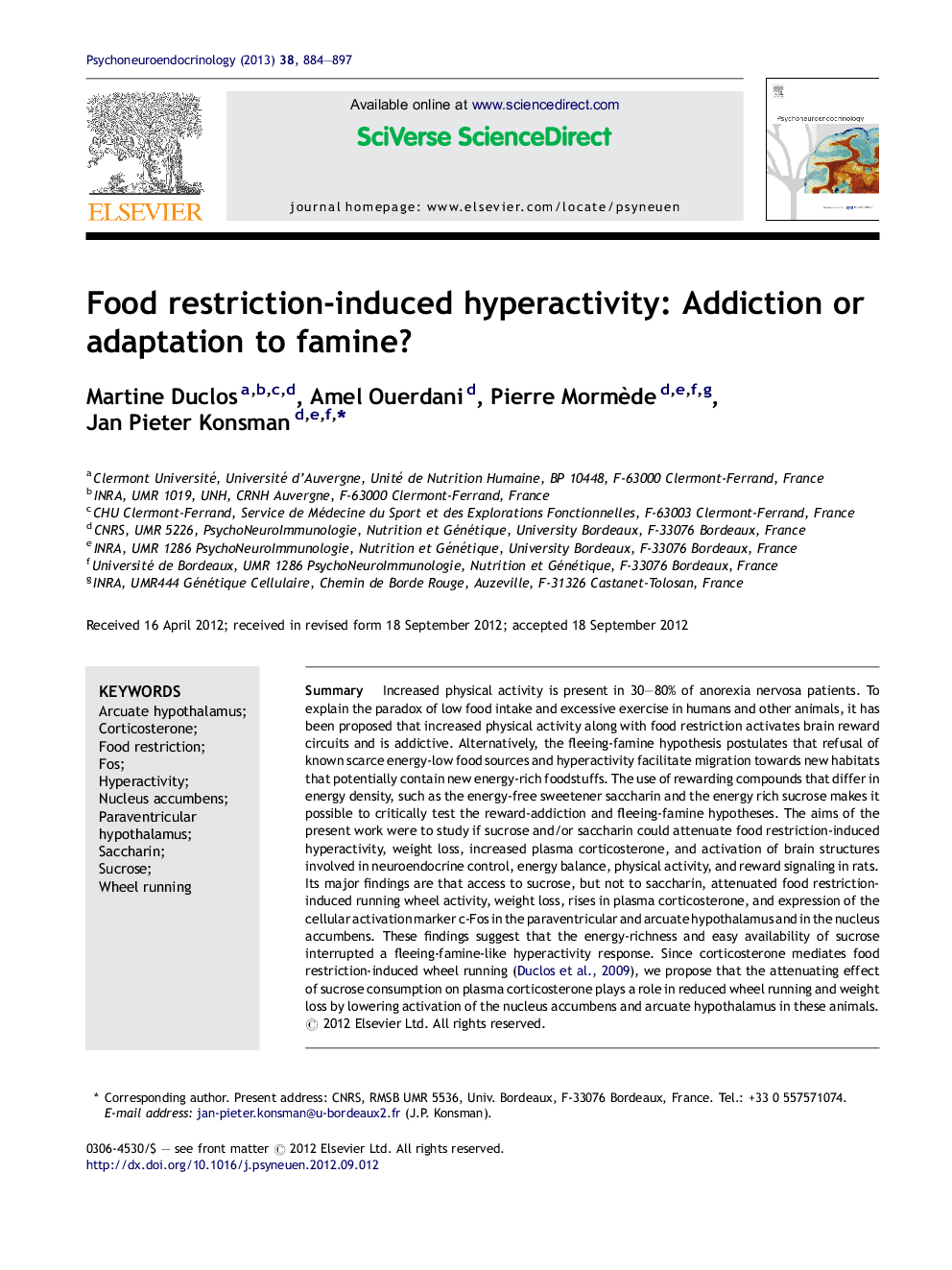| کد مقاله | کد نشریه | سال انتشار | مقاله انگلیسی | نسخه تمام متن |
|---|---|---|---|---|
| 10306242 | 547144 | 2013 | 14 صفحه PDF | دانلود رایگان |
عنوان انگلیسی مقاله ISI
Food restriction-induced hyperactivity: Addiction or adaptation to famine?
ترجمه فارسی عنوان
بیش فعالی ناشی از محدودیت غذا: اعتیاد یا سازگاری با قحطی؟
دانلود مقاله + سفارش ترجمه
دانلود مقاله ISI انگلیسی
رایگان برای ایرانیان
کلمات کلیدی
موضوعات مرتبط
علوم زیستی و بیوفناوری
بیوشیمی، ژنتیک و زیست شناسی مولکولی
علوم غدد
چکیده انگلیسی
Increased physical activity is present in 30-80% of anorexia nervosa patients. To explain the paradox of low food intake and excessive exercise in humans and other animals, it has been proposed that increased physical activity along with food restriction activates brain reward circuits and is addictive. Alternatively, the fleeing-famine hypothesis postulates that refusal of known scarce energy-low food sources and hyperactivity facilitate migration towards new habitats that potentially contain new energy-rich foodstuffs. The use of rewarding compounds that differ in energy density, such as the energy-free sweetener saccharin and the energy rich sucrose makes it possible to critically test the reward-addiction and fleeing-famine hypotheses. The aims of the present work were to study if sucrose and/or saccharin could attenuate food restriction-induced hyperactivity, weight loss, increased plasma corticosterone, and activation of brain structures involved in neuroendocrine control, energy balance, physical activity, and reward signaling in rats. Its major findings are that access to sucrose, but not to saccharin, attenuated food restriction-induced running wheel activity, weight loss, rises in plasma corticosterone, and expression of the cellular activation marker c-Fos in the paraventricular and arcuate hypothalamus and in the nucleus accumbens. These findings suggest that the energy-richness and easy availability of sucrose interrupted a fleeing-famine-like hyperactivity response. Since corticosterone mediates food restriction-induced wheel running (Duclos et al., 2009), we propose that the attenuating effect of sucrose consumption on plasma corticosterone plays a role in reduced wheel running and weight loss by lowering activation of the nucleus accumbens and arcuate hypothalamus in these animals.
ناشر
Database: Elsevier - ScienceDirect (ساینس دایرکت)
Journal: Psychoneuroendocrinology - Volume 38, Issue 6, June 2013, Pages 884-897
Journal: Psychoneuroendocrinology - Volume 38, Issue 6, June 2013, Pages 884-897
نویسندگان
Martine Duclos, Amel Ouerdani, Pierre Mormède, Jan Pieter Konsman,
